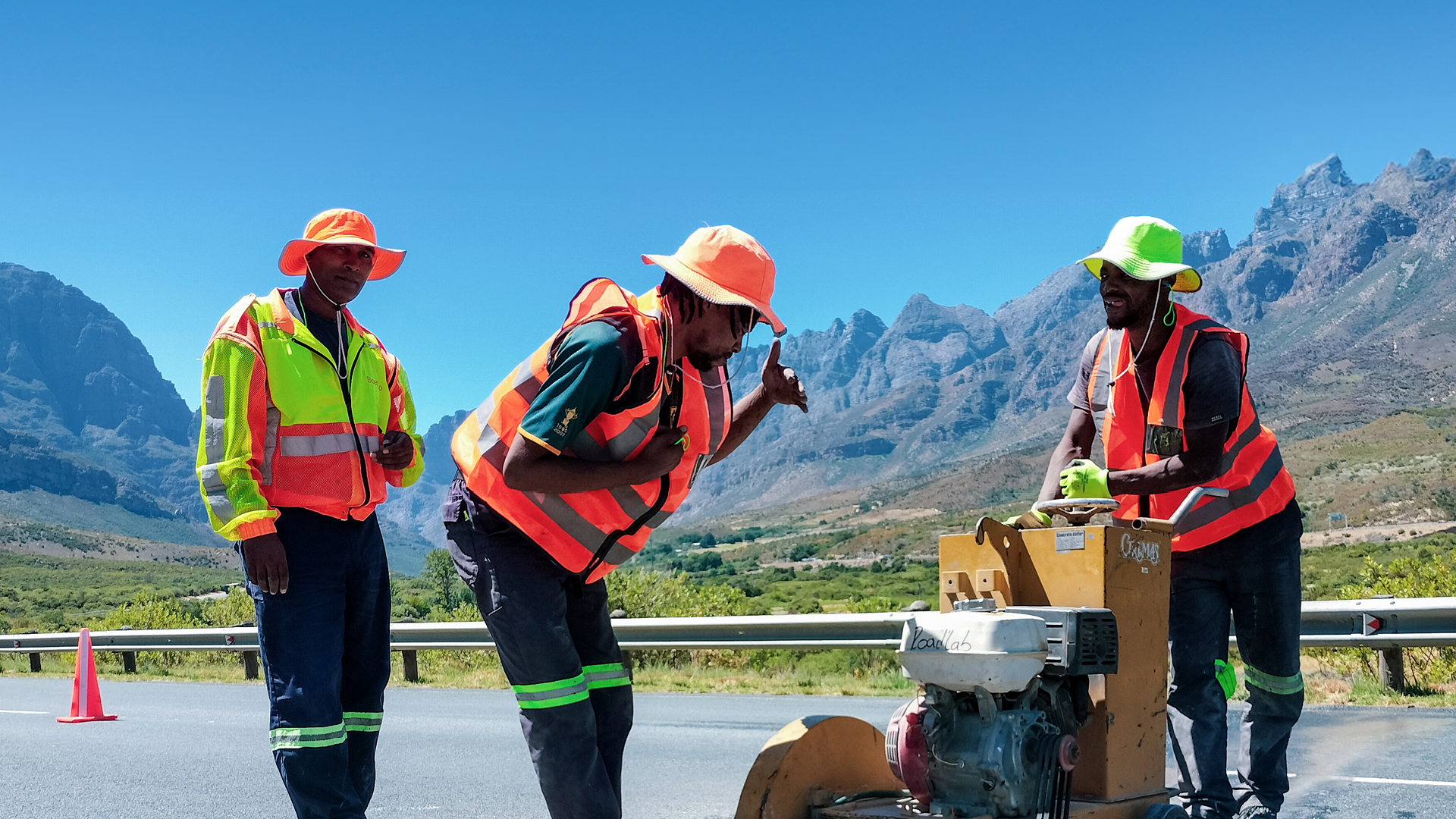OUR PLACE IN
THE EASTERN CAPE
A trusted laboratory offering the Eastern Cape's broadest range of testing services, our accredited facilities are equipped to perform all your quality assurance testing.
YOU CAN REACH OUT TO OUR EASTERN CAPE TEAM TODAY AT 010 021 0570.

Supporting the Eastern Cape Construction Industry
ON-SITE AND LABORATORY TESTING
Leading Quality Assurance in the Eastern Cape
Through daily quality assurance testing of soil, concrete and asphalt, our commercial branches and dedicated
project laboratories support the province’s most significant road and construction projects year after year.
Supported by state-of-the-art technology like the Mastersizer 3000E and the XRDynamic 500 in our Johannesburg lab, we are positioned to support the Eastern Cape with new levels of precision and reliability.
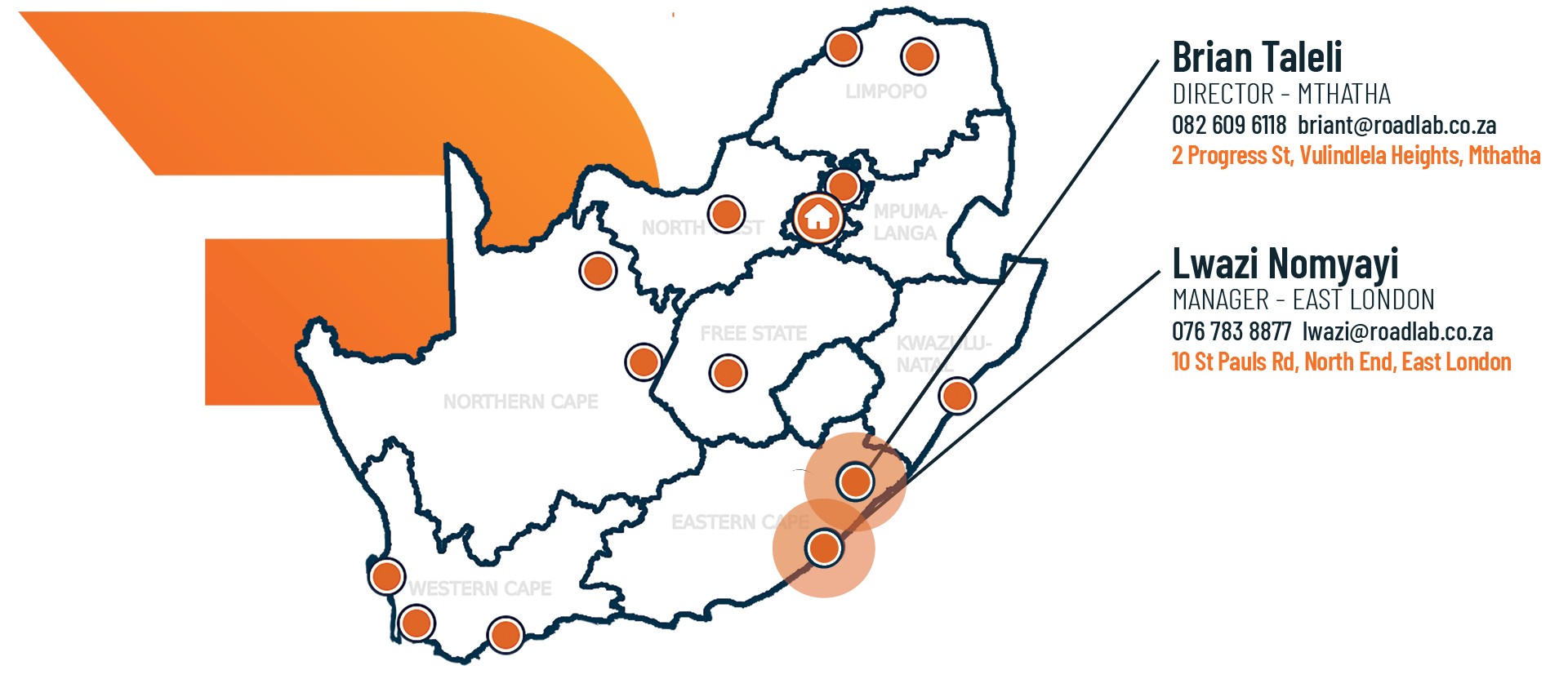
On-site Testing
On-site soil testing provides real-time insights into the prevailing soil conditions at roadworks and major construction sites, guiding engineers in making informed decisions about the soil and environment’s suitability.
Some tests, like nuclear densities, sand replacement testing, test pits and soil sampling typically requires many individual instances of testing in order to generate a meaningful picture.
Other tests, like Plate loads, Dynamic Cone Penetrometer (DCP) and Deep Probe SuperHeavy (DPSH) testing, produce valuable insights with little testing required.
Excellent soil sampling practice is critical to ensure the integrity of results produced back in the lab.
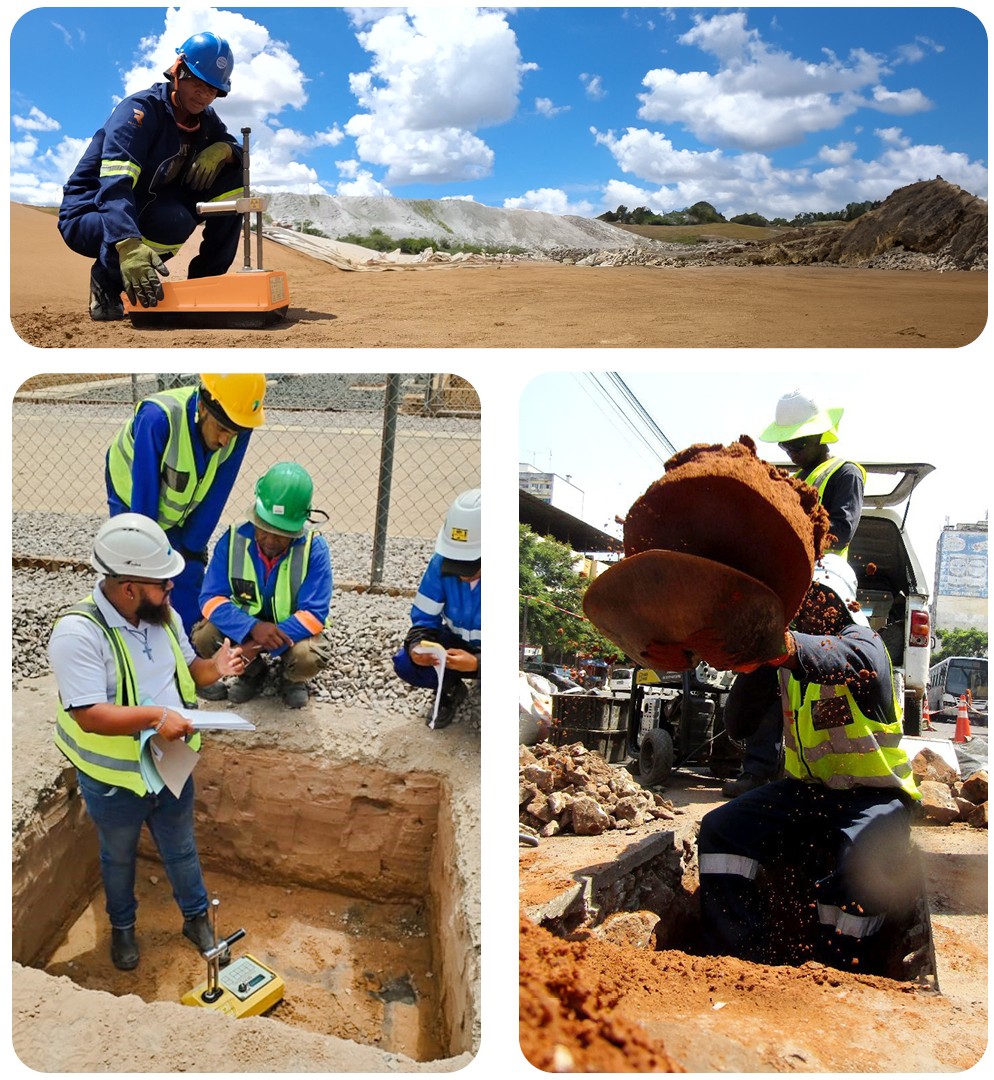
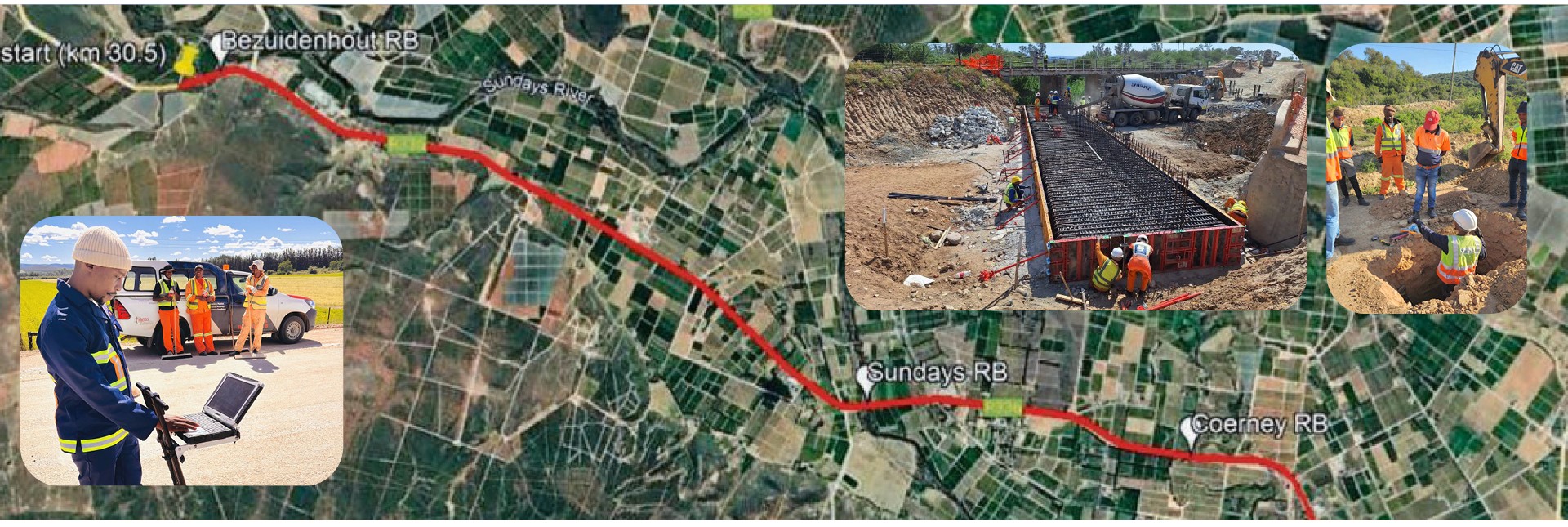
Kirkwood to Addo - Dedicated Project Laboratory
Roadlab’s quality assurance role on this R336 upgrade includes soil, concrete and asphalt investigations, including sampling, slump testing, making and curing of concrete cubes, and compressive strength assessments for 3 bridges along the route.
Soil Testing Laboratory
We can reveal the engineering properties of soil through testing such as the California Bearing Ratio (CBR), Unconfined Compressive Strength (UCS) and Indirect Tensile Strength (ITS).
These investigations nfluence critical decisions in foundation design, road works and major construction.
The PI section of a soil laboratory provides professionals with insights into how the soil will behave under varying moisture conditions.
These more delicate evaluations include the shrinkage limit, liquid limit, plastic limit and plasticity index.
Concrete Testing Laboratory
In the field, tests such as the slump test are conducted to measure the consistency and workability of fresh concrete to ensure that it conforms to the mix design.
In the laboratory, more detailed analyses, including compressive strength, flexural strength and tensile strength tests, provide data that is crucial for designing safe and durable structures.
Coring or molding concrete cubes is a critical aspect of preparing concrete for laboratory analysis.
Asphalt Testing Laboratory
Our cutting-edge laboratory and field testing services provide valuable insights for road construction, pavement management, and rehabilitation projects.
Core sampling and related analysis evaluates the quality and
consistency of asphalt layers in existing pavements.
Compaction Testing evaluates the density and void content to ensure that asphalt layers are correctly
compacted for maximum strength and durability.
Marshall Stability and Flow Testing measures the strength and flexibility of asphalt, assessing its ability to withstand load and stress.
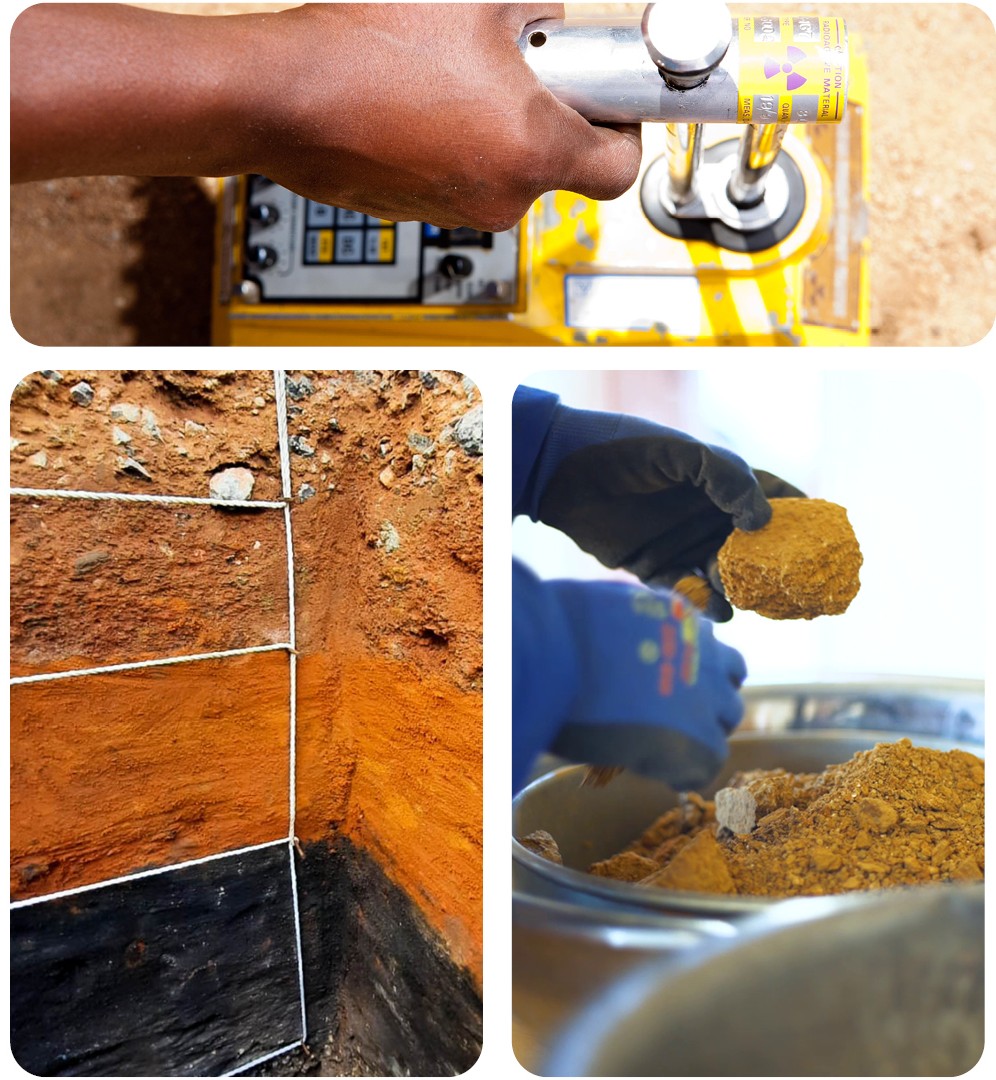
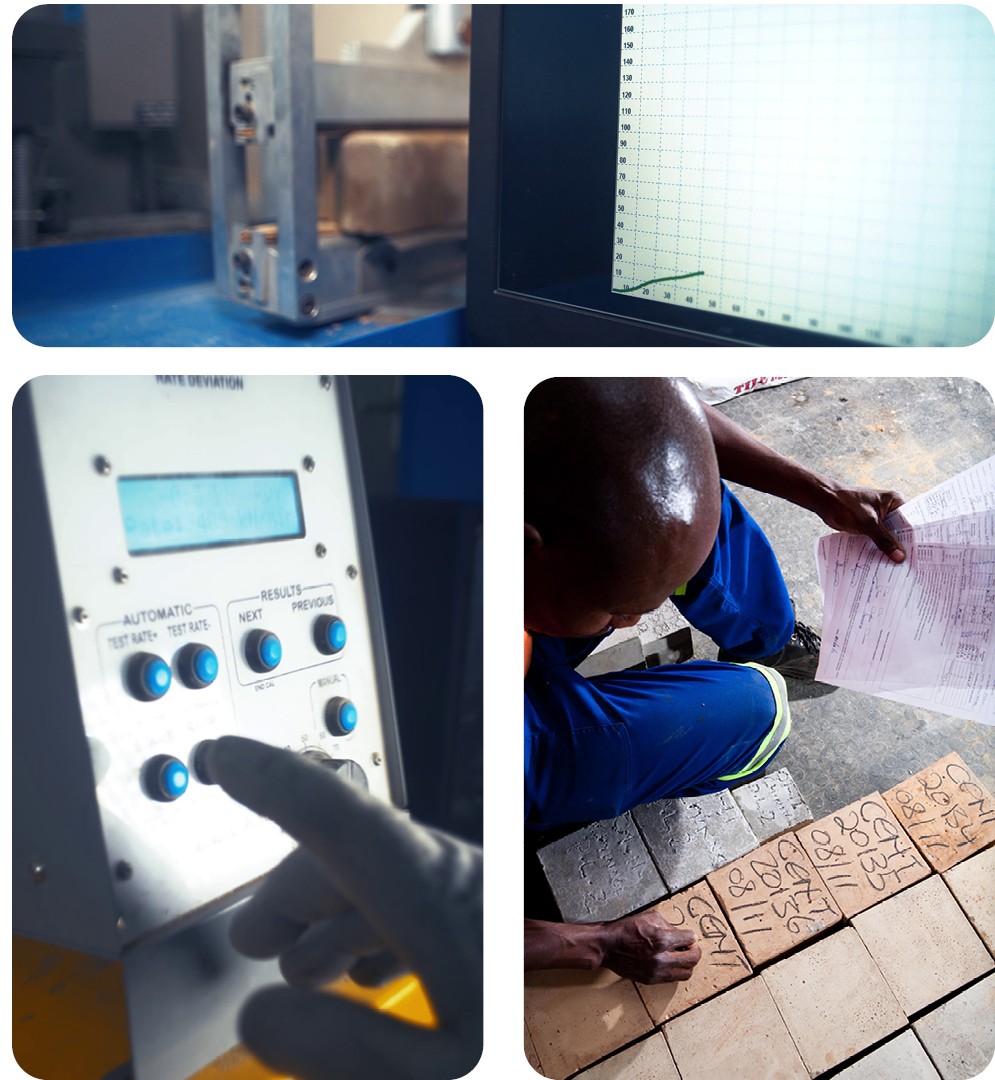
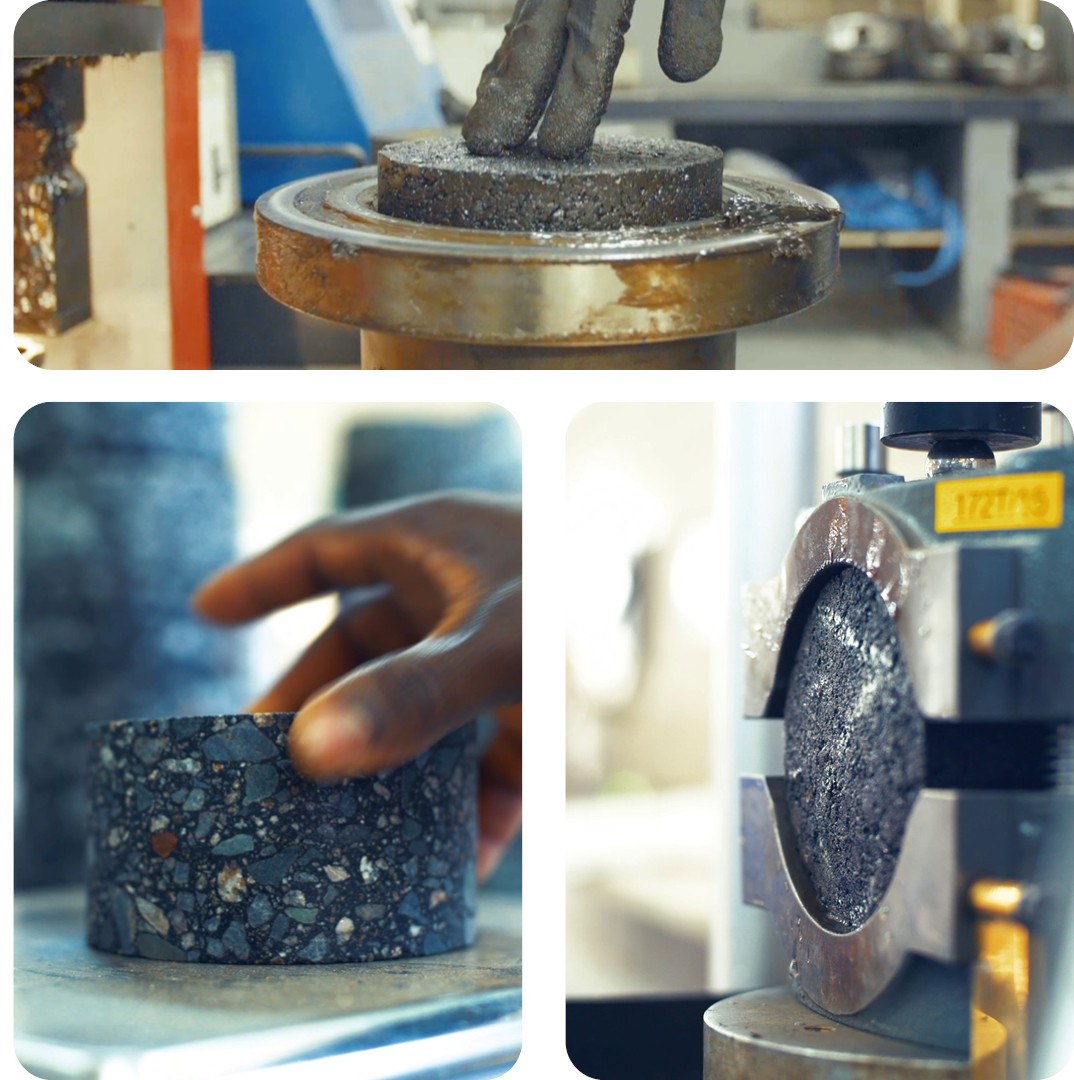
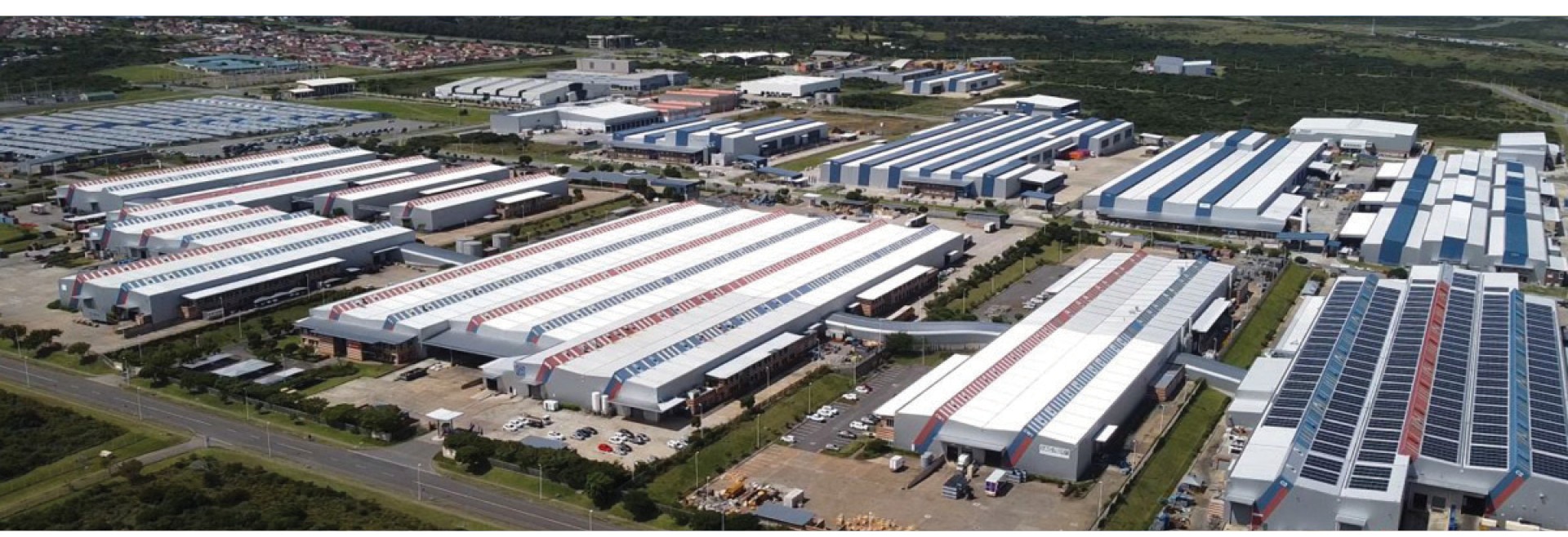
East London Industrial Development Zone (ELIDZ)
The ELIDZ supports industries ranging from automotive manufacturing to renewable energy, fostering job creation and investment in the region. Roadlab plays a critical role in ensuring the integrity of construction materials and site preparation through extensive quality assurance testing.
Centreline Investigations
We can reveal the engineering properties of soil through testing such as the California Bearing Ratio (CBR), Unconfined Compressive Strength (UCS) and Indirect Tensile Strength (ITS).
These investigations nfluence critical decisions in foundation design, road works and major construction.
The PI section of a soil laboratory provides professionals with insights into how the soil will behave under varying moisture conditions.
These more delicate evaluations include the shrinkage limit, liquid limit, plastic limit and plasticity index.
Borrowpit Investigations
Borrowpit investigations are essential to assess the suitability of local soil and gravel for use in roadworks.
A Borrowpit Utilisation Plan outlines how the resources from the borrowpit will be extracted and used efficiently while minimizing environmental impact.
Key procedures include Excavator Test Pits, Dynamic Cone Penetrometer (DCP) tests, MDD (Maximum Dry Density, known as a MOD) tests and California Bearing Ratio (CBR) tests.

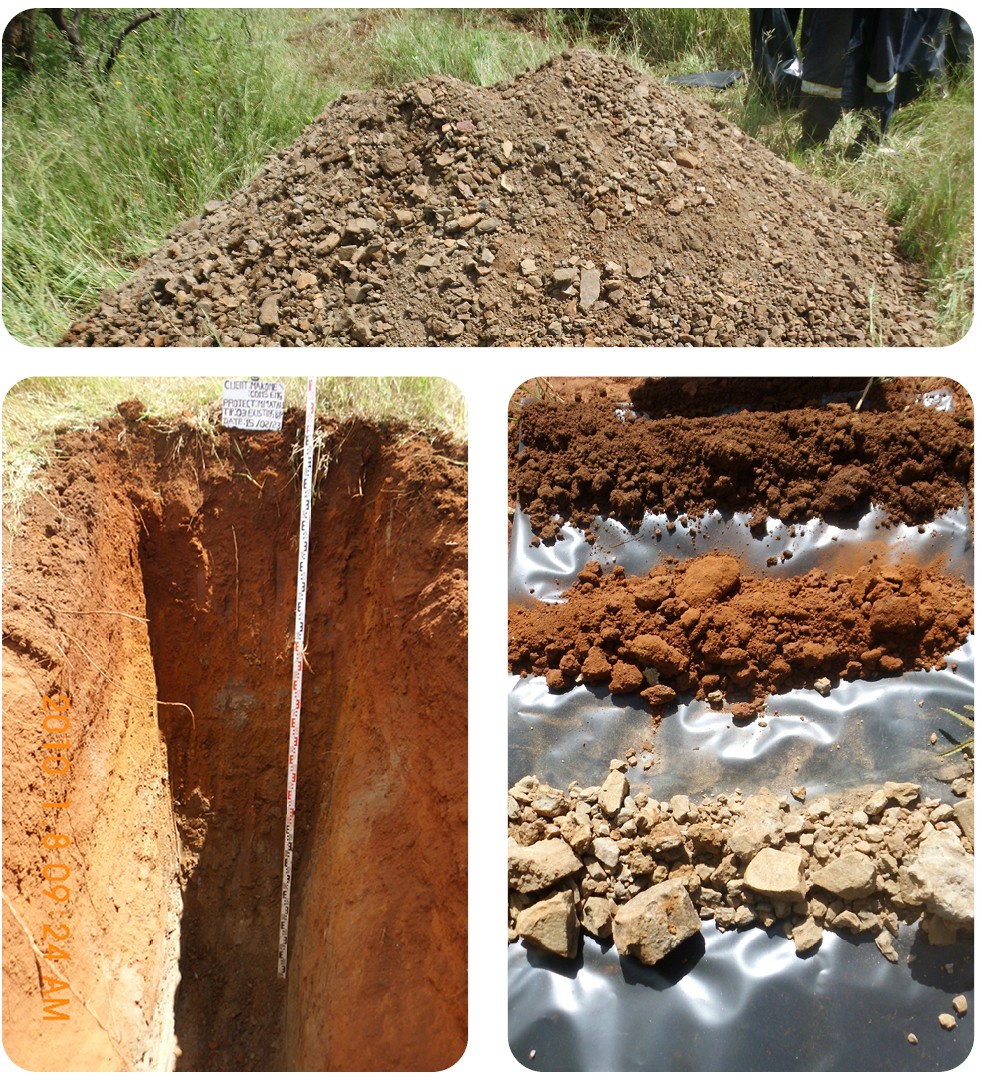
Welcoming Roadlab Mthatha
In 2024 long-time Branch Manager Brian Taleli became Director of Roadlab Mthatha.
This is a significant milestone for both Brian and the entire Roadlab team in Mthatha.
Their strong technical foundation and understanding of the local construction landscape has made them an indispensable resource for many construction professionals in the region, and we expect that this development will mark an exciting new chapter for our Mthatha branch and our presence in the Eastern Cape.

Our dedicated teams in the Eastern Cape are ready to answer your questions. Reach out to us today!
